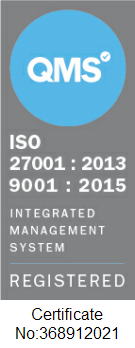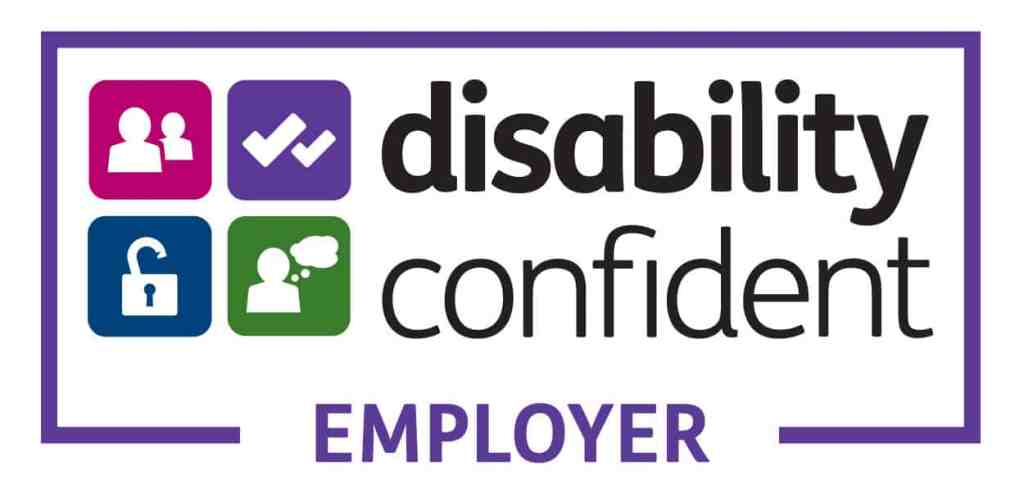Linzi Carlin, Consultant Software Engineer at Nimble shares her journey into Tech with Pete Coulter, Head of Client Services.
Linzi shares her story of how she got into Tech. Her story involves a PHD in social policy, working in social care, two children, a BBC Micro and then a total career change in her 40s.
Listen to the Podcast of Linzi Carlin’s Tech journey here, or read the full transcript below:
Transcript of Linzi’s Interview
Linzi – 00:04
Hello, okay so as you said I’m a software engineer I’ve been doing that for about three or four years now, and and a few other things as well, so I’m a mother I’m a single mother, I have two children and I don’t have a great deal of time or space for anything else so obviously a full on 180 degree career change in my 40s was a great idea. This is about my third career I think but I quite like it here, I think I might stick around.
Pete – 00:46
Cool and uh tell us a little bit about what you do at Nimble, and what perhaps what your day-to-day role involves?
Linzi – 00:51
I work for clients, I write code to make their website work and then I make stuff work on the internet. That’s my job! I can’t fix anybody’s router or printer or fridge.
Pete – 01:07
Yeah me neither, but I’ll give it a go! That’s great, tell us though a little bit about you mentioned that this wasn’t your first career so can you tell us a little bit about your path into Tech and how you got started in the sector?
Linzi – 01:18
Okay, so I actually worked in Social care to start with quite a long time ago I did various roles. I worked with young people primarily. I spent a while working with care leavers and did some interesting things like that. And eventually went to University in my mid 20s and then decided to carry on, and I went and did an MA and a PHD in social policy.
My PhD was funded via a teaching scholarship so I taught alongside doing my research and what I learned from that was that a career in research was definitely not for me and I didn’t like Academia, I didn’t like the environment and I didn’t want to be there. But I did love teaching, I really loved teaching and so towards the end of my time there my children were born a little bit closer together than was probably ideal! So I kind of made the decision to stop working for a while for various practical reasons and just spend my time with them, so I had a career break of about six years.
Then they got older and they went to school and I needed to have some kind of career, I needed some kind of job, something to do, I needed to earn money. I’d always kind of had this idea about learning to write code it goes back to when I was a child my dad had computers really early on they were always around and he had coding books and things and I would pick them up and do bits and pieces and I’d started learning and in primary school I remember when we the school got it’s very first computer, this is how old I am. I think I was about 10 and the only people in the entire school who knew how to use it were me and another boy in my class and we got let out of lessons to show the teachers how to use this computer. It was like a BBC micro I think.
So I was kind of quite into it and then I got a bit older and I went to secondary school and things like that just wasn’t cool, like girls didn’t do that. The only kids who were interested in computers were these really nerdy boys who played Dungeons and Dragons. I was a teenage girl and I wanted to fit in. So I kind of left it.
I got to sixth form took A level maths and I got to sixth form and I was struggling with one part of it and my I went and asked the teacher for help a few times and one day he sat me down he said look don’t feel bad about this everybody has a limit in maths and girls do reach that limit before boys so maybe you should just take another subject.
Pete
Wow, okay.
Linzi
I was 17 and I believed him so I dropped maths and I went I did I went I went sort of social sciences route after that, which wasn’t a bad thing. But I can’t imagine a teacher saying that today. I mean even in the ’90s I don’t think that was really acceptable but that was probably my first experience of coming up against that sort of sexism and stereotypes about what girls and women can do, what we’re capable of.
So I taught myself to code because I’d kind of always had this idea that I’d quite like to learn to code. Maybe I’d be good at that, yeah and I had this vague idea that I would learn to code and maybe I could pick up some work making websites for people or something. I would carry on just sort of being freelance, self-employed whatever. And then the pandemic happened. And my family suddenly had no income and I needed to get a job.
So I got a job and yeah I got a job with another tech consultancy in the middle of 2020 and I started learning how to be a software engineer for real. It was all very very accidental. I hadn’t planned it. It was just like I just fell into it, I don’t quite know how it happened.
Pete – 05:53
You mentioned before that though you’d had an idea of wanting to write code, what was it that attracted you. Was it the creative nature of building something or was it the kind of techy side of being deep in the code, or was it a bit of both?
Linzi – 06:05
I think it was building things, I had this idea of like, I would get really frustrated if this website doesn’t work properly or this app doesn’t work properly and it’s really driving me crazy and surely this could be better and I thought if I if I could learn to code I could figure out how to make this better. Then once I started learning I found that I really just loved the process. It’s like it just really appeals to the way my brain works just sitting and puzzling things out and I love the logic of it. I love that the languages are so simple and you can do such complex things with them. And the further I go with it the more I love it, the deeper understanding I get of the principles and how things work kind of under Hood the more fascinating it becomes.
Pete – 07:01
Great, you mentioned earlier an example of a gender stereotype when you were at school. What about in your professional life can you give us an example perhaps or a couple of examples of the sort of stereotypes and biases that you find you face because of your gender?
Linzi – 07:15
Yeah sure, there’s a few things I think I’ve had quite a few people suggest and I think they’re very well-meaning but suggest that I move into more the delivery side of tech rather than stay in engineering and people are I think they are trying to be helpful, they’re trying to be you know this is a good way for you to progress your career but I feel like it comes from stereotypes about the kinds of roles that women have in Tech on the kinds of things that women are good at. Just for the record I would be terrible at delivery, really really bad at it, I’m the most disorganised person in the world, and I cannot do that for a living. I think it doesn’t come from ‘you’re a woman so you can’t be an engineer’ it just comes from we have these ideas about what people who do certain roles look like and Engineering leaders are not women.
Until you see it you almost can’t imagine it and even like I find it hard to imagine because it just doesn’t really exist.
So things like that happen there are sort of more overt things as well which make me rather cross a lot of the time so recently I asked for access to a particular tool that I needed and the response I got was well we usually only give that to developers, what are you going to do with it and I had to say well I am a developer yeah and I need it to do my job and maybe it was just badly worded, but then I think you know would he have said that to a man would he have made that assumption about a man or would he just have said yeah sure obviously you know what this is and you know.
So there’s things like that and I’ve had people try and ask me if I need help with sort of really quite basic aspects of my job and again it’s like you know maybe that would happen to everyone anyone but from speaking to other women and when I mentioned this to men and they look at me like, ‘they said what to you?’ yeah it tends to happen to women and not to men. The vast majority of men I work with, the vast majority of everyone I work with are supportive and entirely respectful and treat me like any other member of the team. But these things happen I think just a little bit too frequently to be written off as you know just that person or just that person, it’s a pattern
Linzi – 10:10
I guess a lot of the things I think that impact on my working life are to do with the things that are going on outside of work, so being a parent is the biggest one. Being you know having and carrying responsibilities outside of work and that that can be true for anybody but it’s more likely to be true for women. I’m a single parent my eldest child has additional needs so there’s a lot of stuff that I’m juggling, I’m tired all the time my sleep is disrupted, I get up in the morning and I get two kids ready and out the door and wherever they need to go and by the time I get to turning on my laptop I feel like I’ve done a full day of work already. It’s really tiring, and then how do you explain that to people like I’m not focused on my work today because I’m thinking about 12 other things that need to be done.
I suppose that’s one aspect. The other thing I always feel, and again it just sort of adds to my sense of tiredness I think, is there’s a lot of pressure to feel like – I feel like I cannot fail. If I fail that will be taken as proof that I can’t do the job and I think it’s more common for women to feel that pressure than for men. If I fail at this there are people who will look at it and go well you really shouldn’t be doing that because women aren’t good at engineering that’s because
Pete – 11:52
Got you. So you feel that extra weight on your shoulders
Linzi
I hear a lot of women in all kinds of careers talking about this after they have children it’s like you know they’re on the mummy track or they’re expected to not be putting 100% into work and I think it speaks to the really dire way that we organise work that you can’t be an involved parent and fulfil that side of your life and also have a successful career because we don’t organise work in a way that makes that possible and we can’t imagine that there’s another way to do things.
Pete – 12:34
Okay so what does diversity and inclusivity or inclusion mean to you and why do you think it’s important for companies to focus on it?
Linzi – 12:45
Okay I think as a general principle the demographics of the workforce, so the people who are doing the work, ought to be representative of the people who are going to use the product right. So monocultures stifle creativity I think that’s been demonstrated many times the the more diverse we are the more creative we are when you only have one type of person working somewhere you only have one way of looking at things if you want to work somewhere that’s creative and forward thinking and can come up with novel solutions to problems which is what we’re in the business of doing, we’re in the business of solving complex problems you need a diverse Workforce in order to be able to do that.
Beyond that I think there is kind of a moral issue that work should be accessible, work should be accessible to everybody and everyone should be able to participate and it’s not just people like me.
Flexibility is essential, I can’t work without it, but even for people whose lives are not like that they still gain from flexible working because it means that you have a better work life balance, you can do you – you can do things outside of work, it’s not detrimental to anybody.
Pete – 14:16
Agreed. So keeping a lens on inclusivity and opportunities, how have you found your time with Nimble?
Linzi – 14:23
So far mostly really positive, I’ve found it to be an incredibly welcoming place, a very supportive place to be. It’s very respectful of; environment, people, and other people’s circumstances. And I feel like there’s a kind of genuine will to improve to be inclusive to make ourselves better as a company. On the other hand we have a lack of women here, definitely, especially in engineering. Yeah so that’s something that we can seriously improve on, and I think it would be detrimental to us not to actively address that
Pete – 15:15
One of the things we want to do as well is make sure that everyone who is here has equal opportunities in whatever regard you want opportunities. How do you think we’re doing there? Do you think there is anything in particular you think we could do better there?
Linzi – 15:30
Yeah I think putting an emphasis on flexibility, and really really shouting about it. So when we recruit saying we’re a flexible workplace. There have been studies on recruitment advertising jobs that have shown that women are much more likely to apply for jobs that are advertised as flexible.
We can also put women at the front and center of our recruitment marketing campaigns. I think visibility is extremely important, yeah I think the phrase is ‘you can’t be what you can’t see’, so doing outreach. Doing outreach with schools, universities and colleges things like that. I’ve spoken on Career panels and things like that and I always start out with not all software Engineers are middle-aged men in stained band t-shirts! Some of them look like me, and that always gets a smile.
I look like most of their mothers honestly, I don’t look like them anymore but yeah I think people look at me and they don’t see software engineers and I think I would like for the next Generation that you’d look at a woman and think yes software engineer.
Pete – 17:03
Nice, great. Do you think things in general in the tech industry, now that you’re part of the tech industry, do you think things are getting better? Can you see any improvement trajectory for the want of a better phrase?
Linzi – 17:14
Yes, that’s a qualified yes, okay I think the kind of the hybrid working and you know hybrid or remote by default that we now have post pandemic has changed things for everybody. But I think it does good things for diversity, particularly for women, because just anybody who has responsibilities outside of work can now do so much more and have a better work life balance. It’s still difficult to manage but I think it makes things possible that weren’t possible before.
Pete – 17:56
Okay, we talked earlier about how you’ve worked in a few different Industries and a few different careers. Looking back obviously, are you happy that you’ve made the move into Tech? Are you glad that you’re in the tech sector now you know, would you do that again?
Linzi – 18:08
Yes, right I love it. I can’t imagine doing anything else anymore. I think it just really suits me. I love how fast it moves. I’ve always gotten bored right before I’m like I’ve done the same thing for six months. I can’t do this any longer. I need to look for another job. Whereas here Tech moves so fast there is always something new to do it’s one of the reasons I like working for a consultancy because you know I can get bored with what I’m doing now and go ‘can I move to a different client sometime soon please?’ and I can go on to do something completely different.
At the moment I’m a full stack engineer, but at the moment I’m working on a front end team which I’ve never done before, so that’s keeping me interested. I’m making some noises about what I might want to do next which will be something completely different again. So I don’t have the opportunity to get bored.
Agile principles and agile ways of working have completely transformed my experience of work. It wasn’t something I knew anything about before I came into Tech and it made so much difference to me. I have personal Kanban boards for every aspect of my life now! It’s just completely changed my life, I can’t imagine working without that anymore, so yeah I think I’ll stay in Tech. It’s really an exciting place to be, I think it just touches on every aspect of everybody’s life.
Pete – 19:41
Is there anything in particular that you’re really proud of? You know obviously your move into Tech, you must be proud of that and what you’ve achieved, but anything in particular within your time in Tech?
Linzi – 20:19
I mean yes just doing it in the first place. It was like I said it was kind of accidental, I thought I’ll learn to code and then I had to get a job and ended up here and when I’ve mentioned it to people they’ve gone ‘you did what?! You retrained as a software engineer? Okay.. why?’
So I’m proud of that. It was really scary.
Pete – 20:17
Definitely yeah. I mean your path into Tech is something to be proud of because quite often you can get drawn into – when we’re trying to change and readdress correctly the balance of different groups that are underrepresented in Tech – at the minute quite often you can get drawn into the ‘well we need to do it in the schools’ and we need and absolutely we do, but at the same time that’s not the only path into Tech and I think you’re a great example and I think it’s great that you know that you did that of that career change, and that path should be open to everyone as well I think you can’t just tackle this at one end it’s got to be a holistic thing really so yeah kudos to you for making that move I think it’s amazing.
I guess if you could go back to an earlier version of yourself, pick whatever point in your life you’d like to Magic Time Machine – what advice would you give yourself? I think maybe before you got into Tech just to your former self, what would you say?
Linzi – 21:06
I would tell myself that I’m good enough that I don’t have to be better than I am and that I don’t need to listen to other people. I think I ended up going down paths because I didn’t trust my own judgement enough.
I did a PhD because it was suggested to me that you know I was quite good at this academia thing and should probably do a PhD. And it was a terrible idea right it was really a bad idea right. Yeah I would tell myself that I’m good enough and I don’t need to impress anybody or do things because other people think I should.
Pete – 21:49
Brilliant thank you for sharing all of this with us. Is there anything else you wanted to mention or say while we’re here?
Linzi – 21:56
No, I think I don’t have anything else.
Pete – 22:01
Brilliant, thanks very much.
















